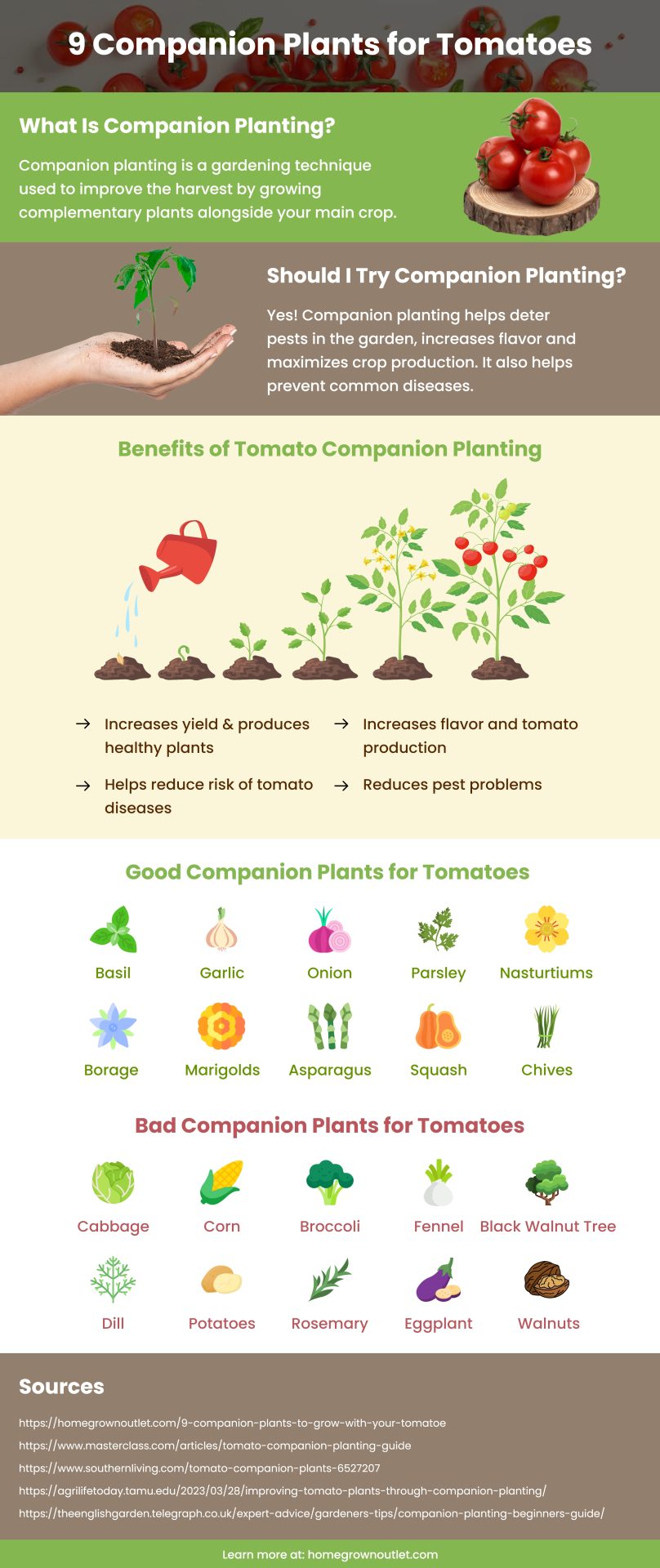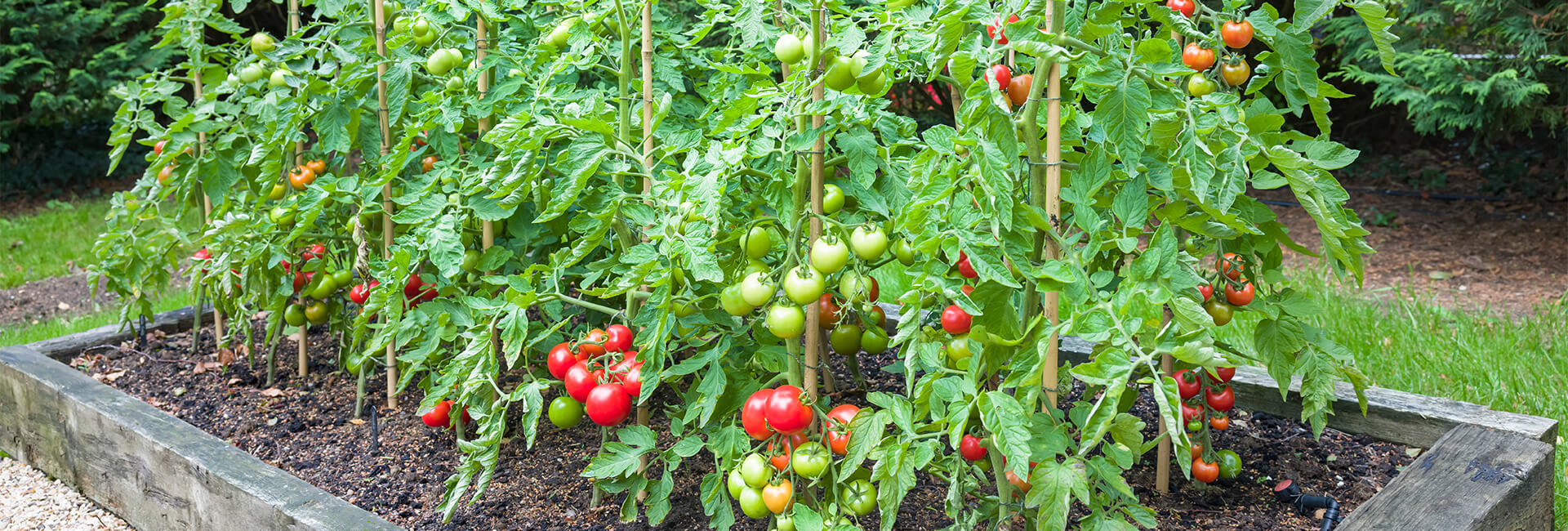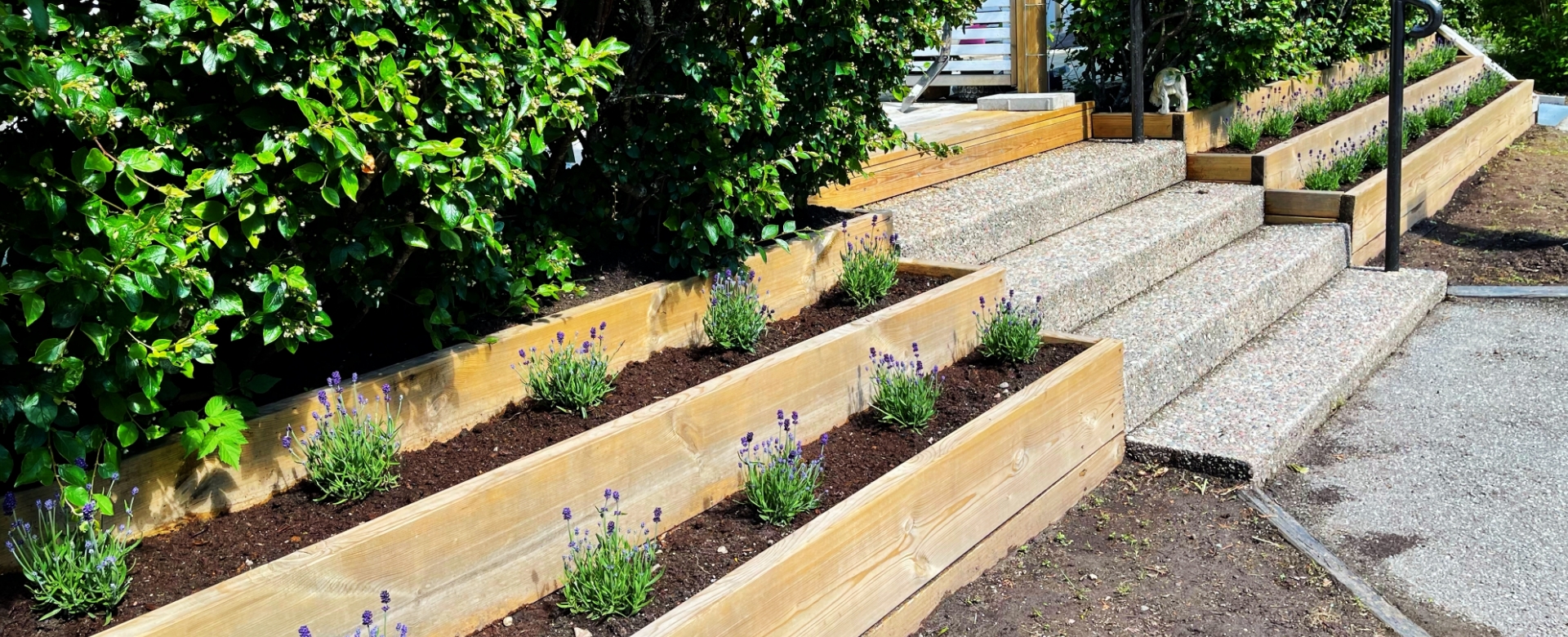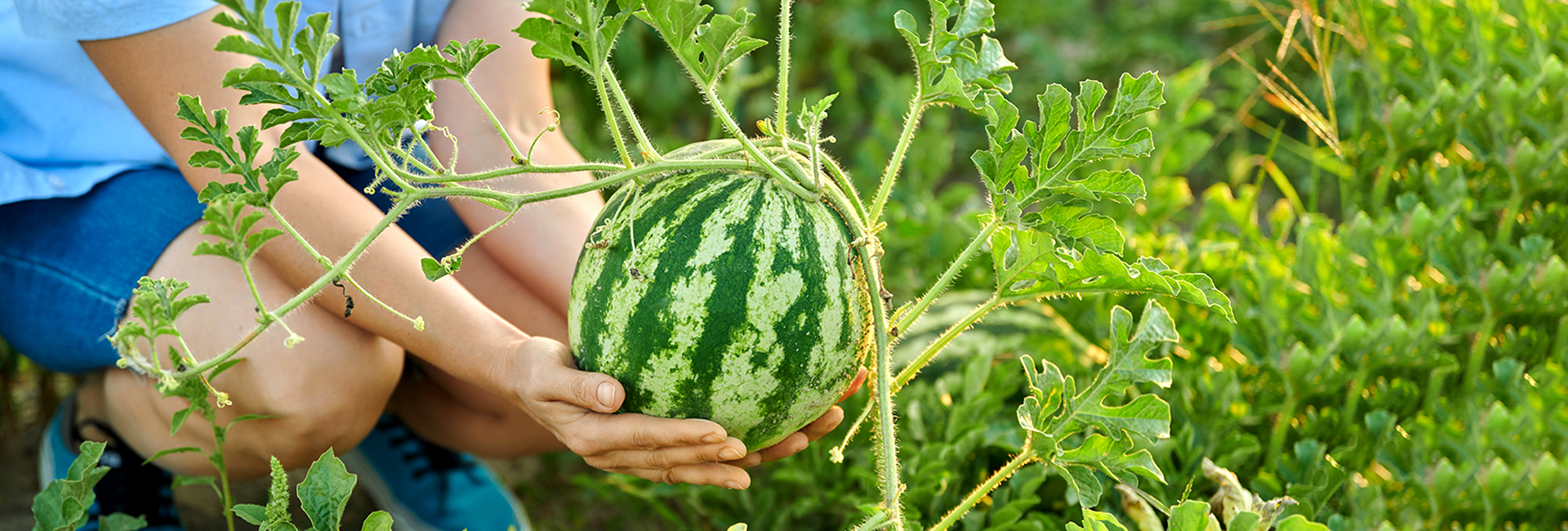Planting your own garden is one of the best ways to get fresh air and grow organic veggies at home. And what can be better than boosting red and juicy tomatoes in your garden space? You can improve the harvest by growing certain plants alongside your tomatoes. It is referred to as companion planting. It increases yields and also helps grow healthy plants. Now you must be wondering which companion plants grow well with tomatoes. Fortunately, you have many options for increasing the number of companion plants with tomatoes in your garden space.
The following are the best tomato companion plants:
1. BASIL
It is one of the best companions for tomatoes and helps keep flies and hornworms away from crops. Besides, it limits the egg-laying behavior of hornworm moths and poses a significant danger to tomatoes. This delicious and fragrant plant naturally repels destructive pests like spider mites, aphids, and hornworms. Basil helps improve the flavor of juicy tomato crops. When the plant’s scent is hidden, pests such as moths and thrips can quickly locate and attack it.
2. BEANS
It makes an ideal companion plant for tomatoes, as it can climb up the plant stalk and help release nitrogen back into the soil as they grow. It is a perfect companion, as tomato plants are heavy feeders of nitrogen. This plant is a vital natural fertilizer in the garden.
3. PEPPERS
Tomatoes and peppers are like sister plants in the garden; they grow well when grown as companion plants by intermixing these 2 yields producers in your vegetable garden. It helps ease your gardening work as they have similar water, light, fertilization, and pest control requirements. Growing them together with tomatoes helps reduce the annual crop rotation process.
4. BORAGE
You should try out companion planting borage in your garden to enhance the overall health of your garden spaces. The best thing about this plant is that it adds superior flavor to your ripened tomatoes. This plant proves to be an organic repellant for cabbage worms and hornworms.
5. MARIGOLD
It also makes a great companion for plants as they help deter nematodes. They resemble microscopic worm-like creatures that help attack the roots of tomato plants, particularly in warm, sandy soil, where they grow the best. It can be developed around tomato plants to ward off whiteflies. While they ward off pest insects, they also help attract beneficial insects like parasitic wasps and hoverflies.
6. ROOT VEGETABLES
A wide variety of root vegetables helps make ideal tomato companion plants, as it depends heavily on phosphorus for developing robust root systems. Tomato plants feed heavily on nitrogen from the garden soil. Root vegetables have a significant focus on root development compared to greenery. Root vegetables coexist well in the garden as they do not compete for soil nutrients.
7. GARLIC
It proves a great companion for tomato plants as it discourages the growth of spider mites when grown beside tomato plants. This strongly scented plant helps repel flying pests as well. The aromatic fragrance of this herb keeps pests away. Garlic is usually planted in the fall and left to grow in the garden during the winter, so it is ready to be harvested in early spring. It is the best time to repel insects that lay eggs in spring, as the garlic plant has the strongest scent right before its harvest.
8. COWPEAS
It is also an ideal companion plant for tomato plants as they distract and help draw away the pest green stink bugs. Therefore, drawing out green stink bugs and planting cowpeas near tomatoes is suggested. To ensure that your tomatoes are safe, check your cowpeas regularly to remove any green stinkbugs you notice on them. Drop cowpeas in a bucket of soapy water to clean them thoroughly.
9. CUCUMBERS
This vegetable can be grown at the base of the plant to keep weeds down. It shares similar growth requirements with tomatoes from an environment and growing conditions perspective. They grow cordons to make the most of a smaller growing area. Cinnamic acid is one of the essential compounds, a strong allelochemical that helps reduce weeds’ germination rates.

Over to You
It is important to consider companion plants to reduce pests attack on your garden, increase flavor and production of crops, and to help avoid diseases for your tomato crops. Therefore, if you have grown tomatoes or are planning to grow them in your garden, it is very crucial to consider growing companion plants.




